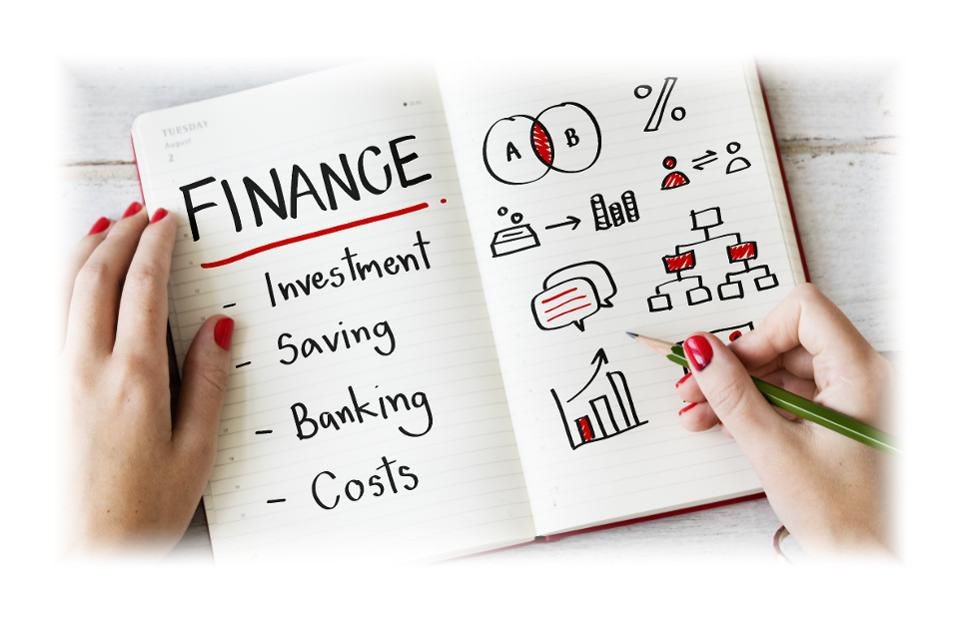In spite of what your age is, it can always get overwhelming to keep track of your financial responsibilities in the right manner.
[toc]Read More:- 5 Movies To Watch To Make Personal Finances Better
Financial Management can be a tough task, here are 7 steps that you can follow to build strong financial foundations…
-
1. Have a savings account account
It is a must to have a bank account once you have a career and start earning money. Keep in mind that having a savings account is just as important. It is essential to set aside a particular amount of money every month so that you have cash in hand in case of any emergencies. It is completely okay to start small as your funds tend to grow with time. Having a savings account at hand is like having a financial safety net that you did not even know you needed. It plays a major role in helping you plan for the future.
-
2. Divide your salary into expenditure and savings
Since the very beginning of your career make it a point to keep aside about 10% of the income you earn. With time, you will be able to figure out what your spending habits are, and you can then increase your savings percentage gradually. The best bet is to keep aside 30% of your income every month and leave it completely untouched. In this manner, you will be able to save a substantial amount of money every year.
Read More:- Personal Loans For Medical Emergency Is The Right Choice To Make, Here’s Why?
-
3. Consider your financial targets in advance
Before you create your budget, it is important that you know the amount that you need to save in a few years for a particular cause. Once you are aware of the amount that you desire to have after a fixed number of years, say after 5 or 10 years, you can base your budget on that. Remember to never spend all of your earnings.
-
4. Cultivate the habit of budgeting
The habit of living within a budget is essential for the efficient management of personal finances. Many households in UAE and across the world have benefited from budgeting for decades. Yet, there are still quite a few people who do not believe in living within a budget or never take the effort to get accustomed to it. Budgeting is one of the most important tools in the arsenal of someone planning to save money for the future. It allows you to approach the huge future costs efficiently by financial management planning and saving for it over the years. With a good budget, you can avoid unnecessary expenses and ensure that you save enough to be financially prepared for planned and unplanned expenses in the future. By creating a budget, you can also keep your debts in check. Budgeting is neither about being able to manage your expenses nor about releasing funds for investing. Budgeting is about rationalizing your expenses.
-
5. Choose the right credit card
Credit cards in UAE are a necessity in many ways. They score over debit cards because of the reward points as well as the ease of conducting transactions even during a financial crunch. With so many banks present in UAE and each bank offering a number of different credit cards, choosing the right credit card for you might get overwhelming. It is a must to know the top credit cards available for you and choose the best one as per your financial requirements. Therefore, it is always advisable to understand your card’s fee structure, rewards, interest rates, and penalties. Also, make sure that you do your research well and compare various cards to determine the best one for yourself and your lifestyle. There are a number of banks providing credit cards in UAE with offers for various specific activities such as dining, shopping, and traveling. Make sure you are well aware of your lifestyle as well as spending habits and opt for a card that best compliments them.
Read More:- 7 Money Myths and Misconceptions, Busted!
-
6. Build an emergency fund
If you are a financial expert, you will know that finances are supposed to be planned only after accomodating for 3-6 months of living costs as an emergency fund parked in a savings account. This period has been calculated taking various factors into account and designed to help you pay your bills and meet your living costs with ease until the crisis tides over. But if you were not aware of this concept, chances are that you might have come across it at some point but did not pay attention to this part of the advice. It is always beneficial to not be under the impression that you will manage when the time comes. Also, do not think it is needless or tend to avoid creating such a fund just because it does not generate any returns. When an emergency presents itself, such emergency funds are what come in handy.
-
7. Give yourself a reality check
It is important that you scare yourself every once in a while if you find yourself deviating from the set budget more than often. In the market that we are living in, one can easily lose their job or be replaced due to the increased popularity of professionals. Therefore, keep in mind that an unfortunate situation can occur at any time and if and when it does, you will wish that you had saved funds.
Read More:- 5 Basic Tips To Keep Your Bank Account Safe & Secure
To manage your monthly expenses, prepare for life’s unpredictable events, and be able to afford big-ticket items without going into debt, budgeting is important. Keeping track of how much you earn and spend does not have to be drudgery, does not require you to be good at math, and does not mean that you can’t buy the things you want. It just means that you will know where your money goes and have greater control over your finances. A budget is not a prison cell to keep you away from your money. Rather, it’s a tool you use to make sure your future is better and, yes, richer than your present.


